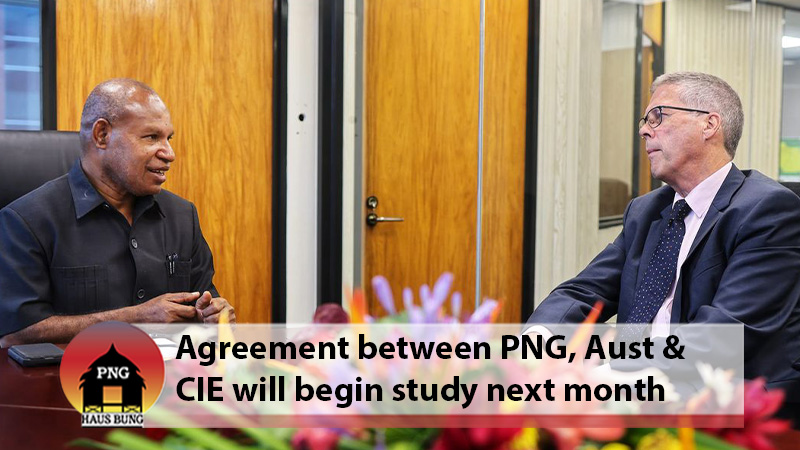A full feasibility study on the bilateral trade between Papua New Guinea (PNG) and Australia will commence at the beginning of next month.
A full term of reference has been agreed to between the two countries and the Centre for International Economics (CIE) will deliver the study beginning February this year.
The study assesses the feasibility of a comprehensive bilateral FTA covering goods and services as well as other crosscutting issues such as investment and local content policies, competition policy, movement of people, sanitary and phytosanitary issues, and technical barriers to trade.
The trade relations between PNG and Australia have been under the PNG-Australia Trade and Economic Relations Agreement signed in the 1970s and recently under the South Pacific Regional Trade and Economic Corporation Agreement.
Despite Market access offered under these arrangements, for PNG, they have not served their purpose to increase PNG’s exports.
Only one commodity group seems to enjoy increased market share in Australia which is gold, copper and other precious metals.
Current statistics indicate that over 98.9% of PNG’s exports to Australia comes from the mining and petroleum sectors.
Other commodities which are very critical for economic development, poverty alleviation and improving the living standards of ordinary Papua New Guineans see a declining market share in Australia although the demand or market in Australia seems to be increasing for these products which PNG can or is able to supply.
A similar pattern is revealed for the services sector. Australia continues to enjoy significant services trade surplus in the PNG market whilst PNG experiences great difficulty to supply services connected to the temporary movement of natural persons and other services skill.
Therefore, this study is very critical to assess how to make trade and investment between PNG and Australia work for the benefit of our people.
The study will assess why PNG products especially from the agriculture and manufacturing sector continue to face stringent quarantine and other Non-Tariff barriers to trade making PNG products difficult to enter the Australian Market and make recommendations forward.
The study will cover amongst others;
✓Assessing the prospects for the expansion of trade in goods and services across a range of sectors, particularly fisheries and agricultural products, through liberalisation of tariffs, consistent with WTO principles, and the removal of other impediments to trade.
✓Identifying options to address barriers to investment in the PNG agricultural and seafood sectors and exports of these products; and
✓Identifying the economic and strategic benefits that Australia and PNG could derive from mutual participation in a formal trade agreement or other trade instrument, including economic modelling on the potential two-way benefits and costs at the sector level that each country could derive
A team from CIE will be in the country beginning February to do consultations with stakeholders and will deliver the final report by June 2023.
I look forward to the outcome of the study which will be implemented soon after the report is delivered. We hope to engage with the Australians for a bilateral trade agreement, a trade agreement that addresses issues that hinders PNG exports and one that is beneficial to PNG similar to the Economic Partnership Agreement with the European Union.

